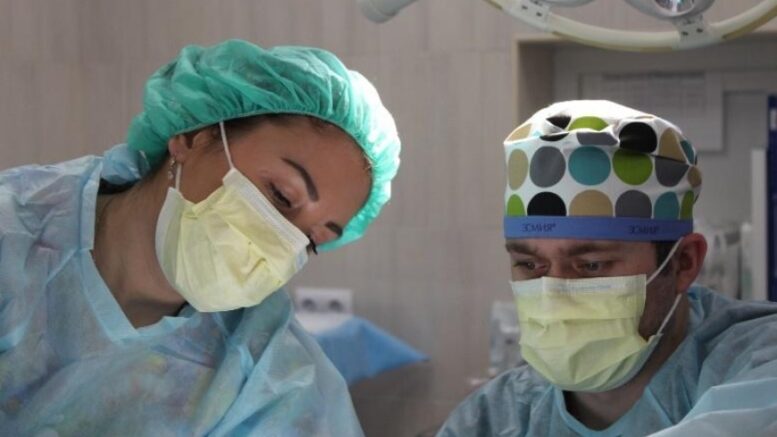With an increasing life expectancy and better standard of care, the need for healthcare services is likely to rise in the upcoming years. Since more people will live to an older age, there is a greater risk of developing diseases and needing someone to take care of them. And due to this urgent need, schools across the country offer accelerated nursing programs to help students earn their degrees as soon as possible.
There are plenty of options if you’re looking for a career change but wish to stay in healthcare. The Bureau of Labor Statistics predicts that job opportunities for nurses will grow by 9% from 2020 to 2030. You no longer have to spend an exorbitant amount of time and money to gain relevant qualifications for your desired job. Accelerated programs have made it possible to transform your undergraduate degree into more advanced and specialized academic degrees faster than traditional schooling.
So, knowing which programs can facilitate your desire to fast-tracking your nursing career can be highly beneficial. Here, we list the top 3 accelerated programs, their requirements, and their potential job outlook in the future.
1. Associate degree in nursing
If you’re looking to build a solid career in healthcare, earning an associate degree in nursing may be the right choice. It’s an undergraduate degree that, unlike traditional Bachelor’s degrees, takes two years to complete. Some schools even offer their students the option to complete it in 18 months and prepare them for entry-level nursing positions. This degree usually tops the list of accelerated nursing programs because it’s highly convenient and offers excellent opportunities for prospective nursing students.
Once you graduate with an associate degree in nursing, you’re eligible to take the National Council Licensure Examination for Registered Nurses (NCLEX-RN) exam. Clearing this exam makes it possible for you to become a licensed or registered nurse officially and allows you to work in the place of your choice. There are several benefits of earning an ADN degree, including:
- The training and education you receive make you capable of clearing your licensure exam and becoming a registered nurse.
- It allows you to enter the nursing profession in just little as two years. Doing so will give you invaluable experience and skills to help your future career growth.
- Having an ADN degree expedites the pathway to earning a solid income and lets you explore a continuously expanding and evolving field.
- This degree provides the necessary skills required for more advanced nursing programs. Therefore, if you ever want to pursue another degree in the future, your ADN qualification will aid you in the process.
- You won’t have to spend large sums of money on tuition fees and can even start earning part-time while pursuing your education.

The admission requirements for enrolling in an ADN program may vary depending on the school you’re attending. However, certain prerequisites are usually compulsory, such as:
- GED or high school diploma
- Your SAT scores
- Personal statement
- Clearing the HESI exam
Earning an ADN degree can open up a broad range of career opportunities. You can work in an environment of your choice, including:
- Hospitals
- Schools
- Nursing care facilities
- Pharmacies
- Urgent care centers
With the increasing need for healthcare professionals, job opportunities for registered nurses remain remarkably high. According to Glassdoor, the average annual salary of a registered nurse with an ADN qualification is $86,952.
2. Accelerated bachelor of science in nursing
This degree program typically caters to non-RN students who already have an undergraduate degree in a field besides nursing. The program covers theoretical and clinical knowledge over 16 months and prepares prospective students to handle real-life situations. So, if you’re looking to switch careers but don’t want to go back to finishing a four-year nursing program, this degree is perfect for you. Once you receive your degree, you can apply for the NCLEX exam and earn your RN license to start practicing in any healthcare facility.
An accelerated BSN degree can be the perfect pathway to making a career switch. Here are the top 5 benefits it can offer:
- In the past few decades, several states have been pushing toward making a BSN degree a requirement for earning an RN license. Therefore, nurses with a BSN qualification are in more demand and have greater job opportunities in various healthcare settings.
- Earning a BSN degree can be a gateway to achieving more advanced graduate or specialized degrees that offer lucrative salaries and better job security.
- An ABSN program graduate can pursue jobs beyond bedside patient care.
- The curriculum of this degree program trains students for evidence-based clinical care, managerial roles, and the importance of community. Nurses who graduate with this degree tend to provide a better standard of care and significantly improve patient outcomes.

The admission requirements for an accelerated BSN program may include:
- Undergraduate or graduate degree in a non-nursing field
- Personal statement
- Candidate interview
- CPR certification
- Letters of recommendation
You can pursue various career options such as:
- ICU nurse
- School nurse
- Public health nurse
- Health informatics nurse
- Emergency room nurse
The median annual pay for nurses with an accelerated BSN degree is $77,600. However, the pay range may vary depending on your skills, location, and experience.
3. Accelerated master of science in nursing
The accelerated master’s in nursing degree is ideal for non-nursing students who want to pursue a career in healthcare but don’t have a health-related degree. Since their undergraduate degree is in a field other than nursing, they must first earn a bachelor’s in nursing. After this, they can pursue an advanced master’s degree. The program typically covers three semesters. This 12-month accelerated nursing program provides nursing students with extensive knowledge and clinical experience that offers insights into each specialized field. Therefore, you can earn your master’s in the area of your interest without spending any extra time or money.
Accelerated MSN programs typically require prospective students to have:
- An undergraduate or graduate degree in a non-nursing field
- Appropriate GRE scores
- Personal statement
- Science subjects prerequisites
- Letters of recommendation
An MSN degree opens doors to several career opportunities like a nurse educator, clinical nurse specialist, family nurse practitioner, or certified nurse-midwife. All these jobs offer lucrative salaries with better working hours. They can earn an annual income of $98,000, which may get over $130,000 after gaining a few years of experience.
Conclusion
Since accelerated programs are faster-paced than traditional degrees, they may be challenging for some students. But if you want to fast-track your nursing career and start earning a well-paid salary, these degrees are your greatest ally.
